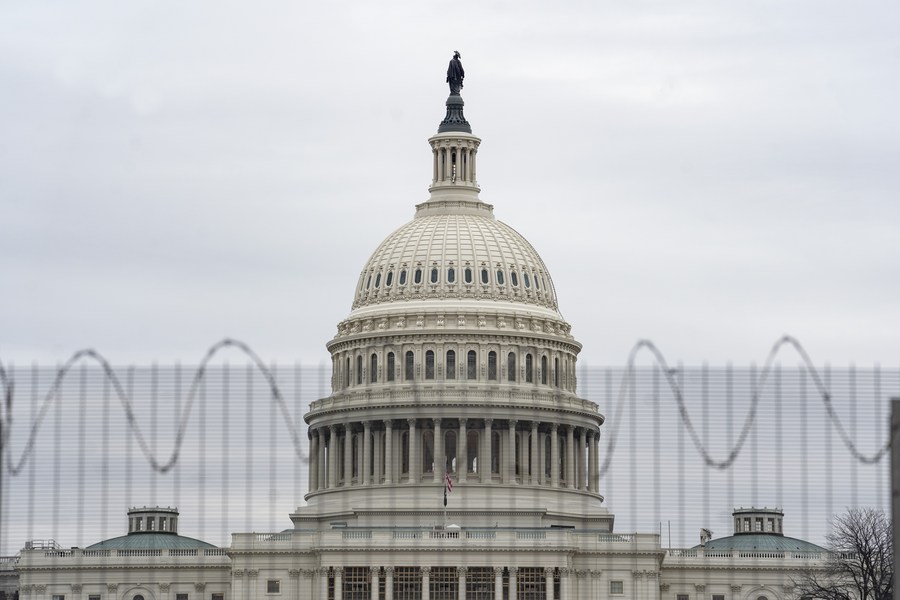'Democracy' talkfest fails as vote winner
By ZHAO HUANXIN in Washington | China Daily Global | Updated: 2021-12-13 09:46

With problems at home, US advised to do less preaching and more work
The United States should focus on getting its own house in order before promoting its model of governance, observers said in response to the country's Summit for Democracy that ended on Friday.
Richard Haass, president of the Council on Foreign Relations, in a tweet hours before the two-day virtual gathering started, gave three reasons for why the summit was "ill advised".
First, the US needs to work with "non-democracies" on regional and global challenges, and the summit's invitation list was filled with "inconsistencies".
"Most important, US not in a position to preach or provide model. We should be focusing on getting our own broken house in order," he wrote on the social media site.
"In the spirit of don't just criticize but offer up an alternative, what about the White House convening a domestic democracy summit with politicians, educators, civil society leaders, business and labor, clergy, etc, to discuss an agenda for repairing American democracy?"
Carlos Santamaria, a senior writer with GZERO Media in New York, said in an analysis that "having a single country arbitrarily decide who's democratic is hardly democratic at all".
The stated goal of the summit is to help strengthen democracy in like-minded countries, and the US wants to draw an ideological line between governments that share or once shared common values with the US and the rest, Santamaria said on Saturday.
"But Biden has too many domestic political problems to pay more than lip service to his stated goal of promoting democracy worldwide," he said of the challenges facing President Joe Biden.
While US allies are now a "hodgepodge" of values-based ones and realpolitik, even US citizens themselves can't agree on what democracy means for them.
A poll by the Pew Research Center published last month showed that people in the US largely share the view that their democracy is no longer a model, while few believe US democracy, at least in its current state, serves as a good model for other countries.
A median of just 17 percent of those surveyed expressed confidence in the US as a role model for democracy, according to the polling company's Spring 2021 Global Attitudes Survey.
Wei Nanzhi, a researcher in the Institute of American Studies at the Chinese Academy of Social Sciences, said the US government should further rethink whether its hegemonism and power politics in the name of democracy "are popular and welcomed".
"When even its own people doubt the authenticity and effectiveness of American democracy, when the long-term export of American democracy brings only disasters rather than wellbeing to the people of many countries in the world, the behavior and actual effect of holding a democracy summit remains questionable."
The fact that some countries regard one form of democracy as the only political criterion "is merely an expression of civilizational superiority and has a strong racist undertone", she said.
Jon Taylor, of the University of Texas, said the US may want to get its own house in order first, "given that the last year in the US saw an insurrection led by a former president who appeared to not only encourage it but use it as a pretext to overturn an election and abrogate over two centuries of constitutional law in order to stay in office".
Taylor, a professor of political science and chair of the Department of Political Science and Geography, said the risk to US democracy is not from China, but from "from ourselves".
"I'd like to see a foreign policy more devoted and centered on the challenges posed by climate change, income inequality… and migration, and enhancing international trade," he said in an email interview with China Daily on Saturday.
Liu Xuan in Beijing contributed to this story.
























